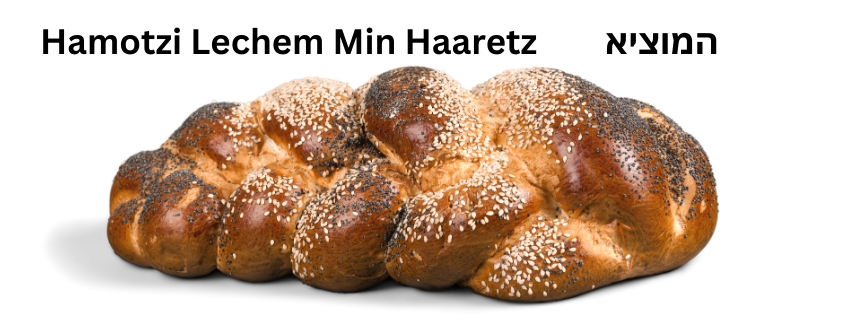The “Hamotzi Lechem Min Haaretz” is the Hebrew blessing for bread and is one of the most well-known blessings in Jewish tradition. It is recited before eating bread, and by extension, at the beginning of any meal that includes bread. This blessing is a way to express gratitude to God for providing sustenance and recognizing the divine source of our food.

Origins of the Hamotzi
The practice of blessing food before consumption has its roots in the Torah and is further elaborated upon in the Talmud. The blessing “Hamotzi Lechem Min Haaretz,” which literally means “who brings forth bread from the earth,” is derived from the verse in Psalms 104:14, which states, “He causes grass to grow for the cattle, and herb for the service of man: that he may bring forth food out of the earth.” The rabbis instituted this blessing to acknowledge God’s role in the natural process that brings bread to our tables.
In Jewish law, bread holds a special status as a staple food, and the blessing over bread is considered the most important of the blessings said over food. When bread is present at a meal, it takes precedence, and other blessings are generally not recited separately, as they are considered covered by the “Hamotzi” blessing.

The Text of the Blessing
The blessing is brief but profound, it recognizes god’s rule in the everyday act of eating. Below is the text of the “Hamotzi Lechem Min Haaretz” blessing:
Hebrew:
בָּרוּךְ אַתָּה ה’, אֱלֹהֵינוּ מֶלֶךְ הָעוֹלָם, הַמּוֹצִיא לֶחֶם מִן הָאָרֶץ.
Transliteration:
Baruch Atah Adonai, Eloheinu Melech HaOlam, Hamotzi Lechem Min Haaretz.
English Translation:
Blessed are You, Lord our God, King of the Universe, who brings forth bread from the earth.
Significance of Hamotzi
In communal settings, such as Shabbat meals or festive gatherings, the “Hamotzi” blessing is often recited out loud by one person on behalf of everyone present, who then responds with “Amen” to affirm the blessing.
The “Hamotzi Lechem Min Haaretz” blessing is a fundamental part of Jewish dining rituals, embodying gratitude, tradition, and connection to god.

